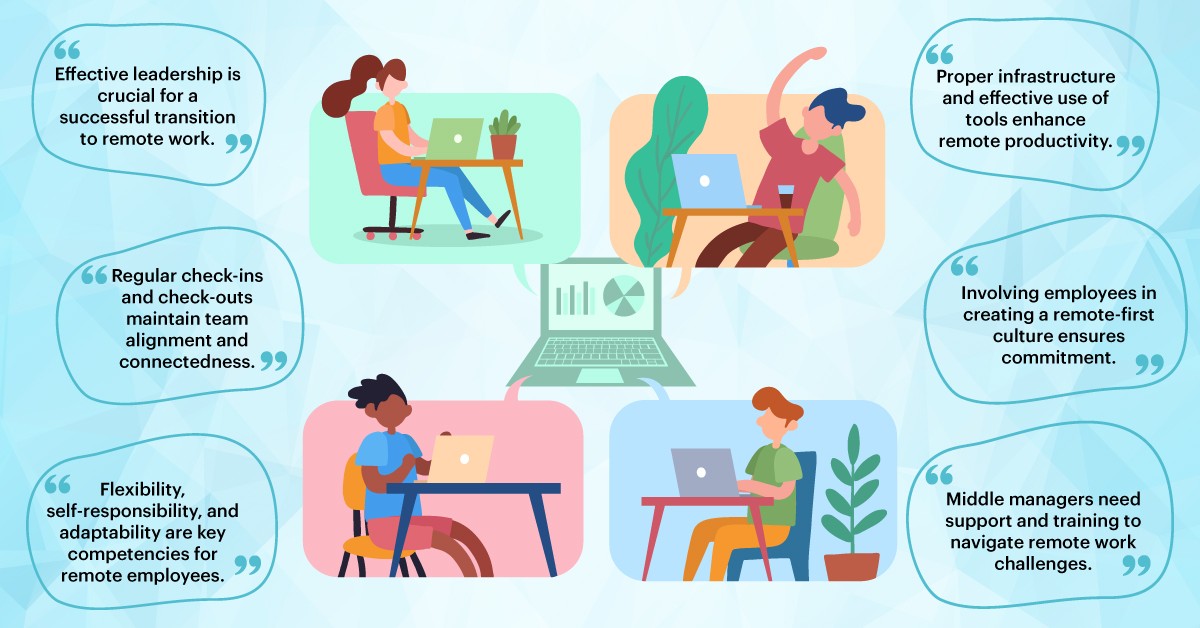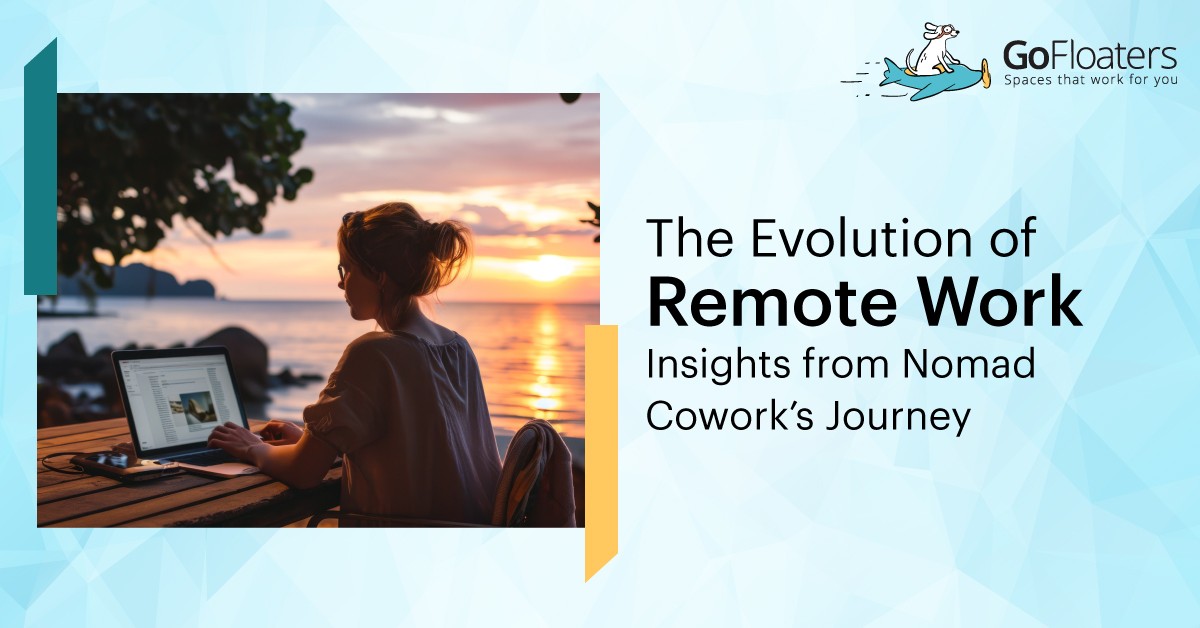Interviews
Transitioning to Remote Work - Insights from Mine Dedekoca
Shyam Sundar Nagarajan / Reading Time : 5 mins
Remote work is one of the biggest shifts in the workplace in the last decade , and it has had quite an impact on professionals today. On the other hand, the transition is not without some form of risk which must be well addressed by one during the change process. This way, as educators enter the workforce, these challenges do not have to become monumental hurdles that hinder their development and the program’s success, but instead, they become teachable moments for the program to learn what strategies work best to make such transitions less palatable. This article builds upon the information recalled by Mine Dedekoa, the founder of Happy Work Studio, during a detailed webinar she conducted about remote activities.
📑 Key chapter:
Mine’s Transition to Remote Work
Mine Dedekoca has a lot of expertise in advocating and implementing managed virtual work environments. More particularly, as the founder of Happy Work Studio, she actively assists various organisations to adopt culture for fully distributed work. Her working career started in 2012 when she became country manager of Upwork in Turkey; she initiated debates around the gig economy and freelancing. In the past years, Mine has coordinated full dispersed teams and is an expert in giving talks on new working models. The pandemic only served to reinforce the need for remote work – and so she created Happy Work Studio with a vision of improving remote practices for the better.
The Evolution of Remote Work - Insights from Nomad Cowork's Journey
Read NowLeaving behind the traditional ‘office-focused’ setup and moving towards a ‘remote-first’ working culture comes with it own set of peculiarities. First, the difficulty of changing organizational perceptions might be considered as one of the most serious challenges, especially the companies formed during the pandemic period, with no prior obligations and experiences in office-based work environment faced fewer challenges. However, in large organisations for which such a shift is being contemplated, this process entails leaving behind office-era assumptions and practices.
Another challenge that seems to emanate from the collapse is failure to plan, especially in transmitting the plans to a different level. Not having timely due dates or well-specified roles can create challenges in teamwork in the vast majority of remote work environments, which results in time-wasting and dissatisfaction. Mine highlights how the leadership team needs to be fully fractionated in the remote-first paradigm to create and steer the right behaviors among the workers.
Another factor that makes it harder is that there’s usually poor infrastructure and poor usage of tools. This is because organizations have often assumed that problems can be compounded by buying new tools, when in fact, the solution goes hand in hand with resource management.
Critical Leadership Factors for Success with Remote Teams
Leadership is perhaps a key that needs to be used carefully when the transition is made towards remote working. Leaders need to look for best practices and embody and practice the new ways of working themselves. Mine points out that most issues come up when the leadership is not in sync with the remote first culture. They are obliged to analyze the need to hold meetings; moreover, it is crucial to opt only for effective and comprehensible communication.
Mine highlights,
Leadership activities directly contribute to the formation of an organizational culture where the new culture values are consistent with the organizational culture.
Basic Technologies for Remote Work
Concerning infrastructure, remote work largely depends on the quality of the structure put in place to facilitate the execution of work. This involves being equipped and possessing the recommended equipment and or apparatus and also knowing how to employ them properly.
Mine stresses out the fact that before one goes out to procure additional tools, he/she needs to conduct an evaluation of the available tools. This viewpoint also is advantageous to limiting the number of tools that inundate employees with irrelevant and inefficient products because understanding the business’ specific wants and needs can help in determining which tools actually improve company productivity.
For example, it is possible to establish that companies should have a definite remote organizational manual with clear descriptions of how to communicate in the team, including online and offline tools, as well as classes of communication: synchronous and asynchronous. This understanding deems to be crucial in eliminating confusion of which channel to use at what time and consequently increases the pace and effectiveness.
Developing a Remote-First Culture
Mine constantly says,
Engaging the employees during the development of the new work culture makes the exercise much more than an organizational development thing done by the HR department of the company. This preferable culture change is indeed sustainable since it ensures that employees are invested and committed to the change.
Moreover, continuous reinforcement of the entrenched values and behaviors of the remote-first culture through persistent communication and celebration of the organizational standards contributes to the acceptance of the new norms or changes required in the work culture.
In discussing further about the remote-first culture, Mine breaks the truth:
“To be honest, not everyone is good at working from home and is properly suited for this kind of job. Consequently remote employees have particular competence profile in which flexibility and self responsibility and adaptability are inherent.”
Flexibility is concerned with tackling cultural barriers and working in different time zones, as well as addressing the dynamic needs of the team. Thus, these competencies should be supported by the training that is aimed at the establishment of self-knowledge and management skills. Making sure that the workers that exhibit such behavior are appreciated also acts as a form of motivation to other employees to also behave in the same manner.

Final Thoughts
While moving to remote work, organizations, bosses and managers have to pay attention to the need to ensure proper management and control through good leadership and engagement that will support work from home model effectively. When the challenges are faced and the solutions suggested by Mine Dedekoca acted upon, businesses can develop a strong and effective remote culture that improves productivity, staff satisfaction and overall overall quality of life. It is crucial to understand that the change can be difficult, but the purpose and goals of the process can help to create a more flexible and strong organization.

